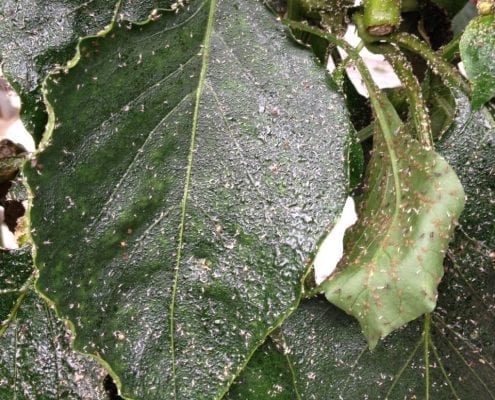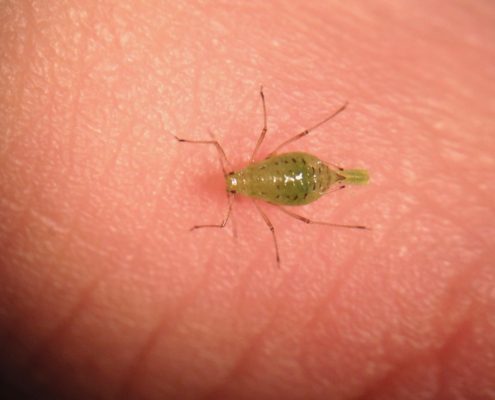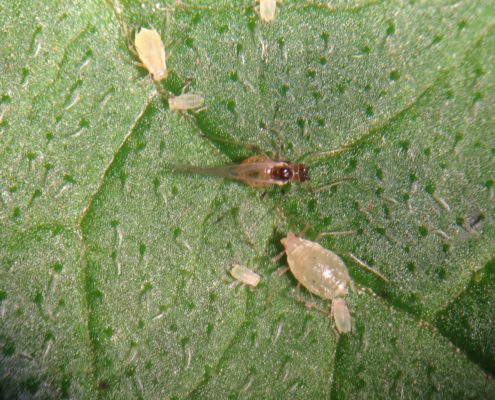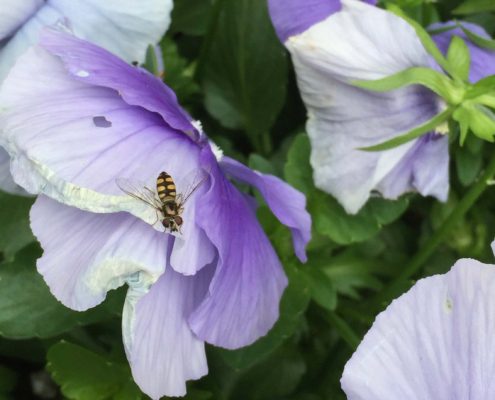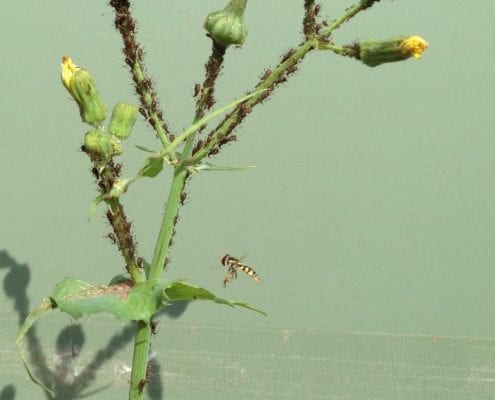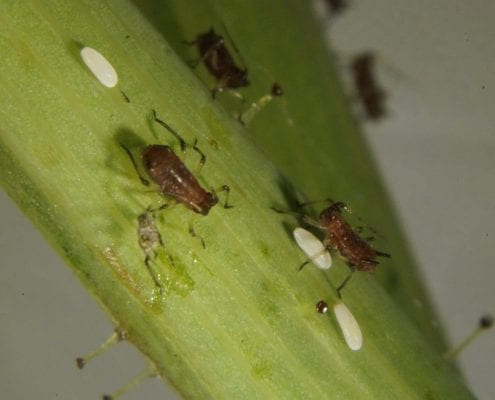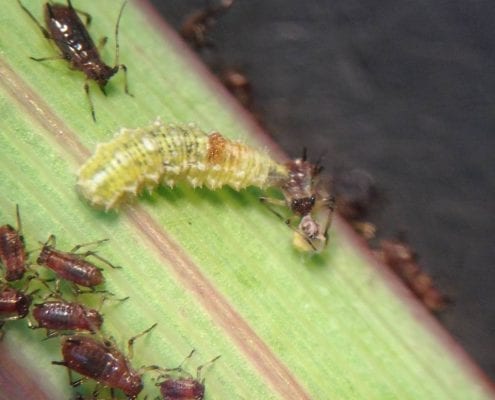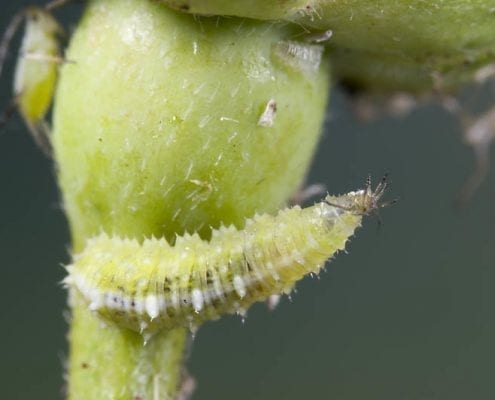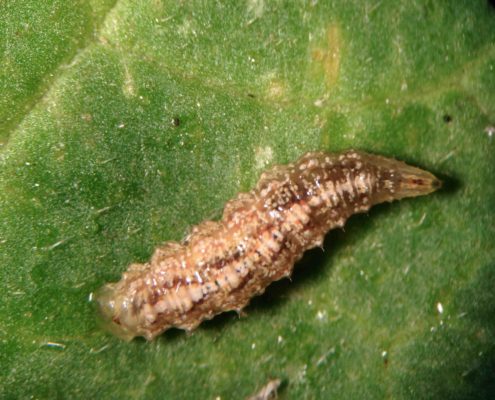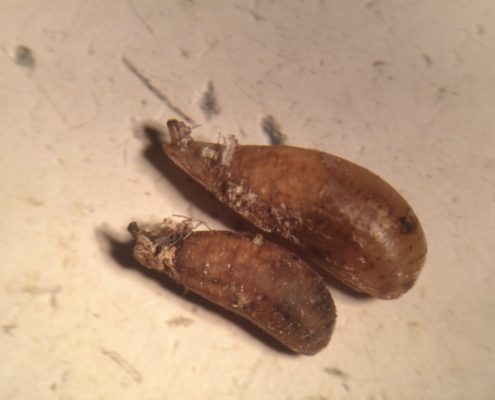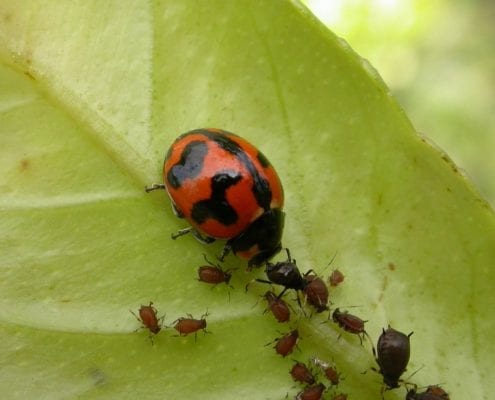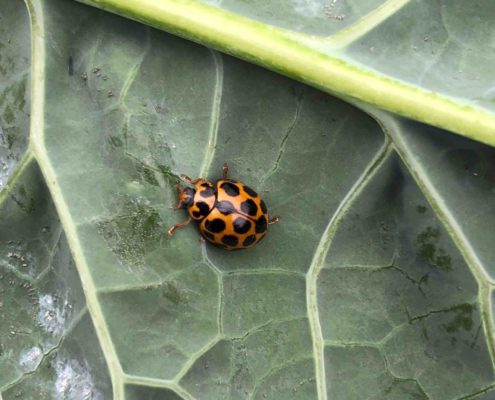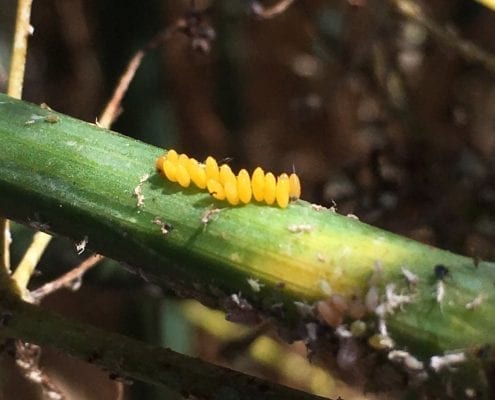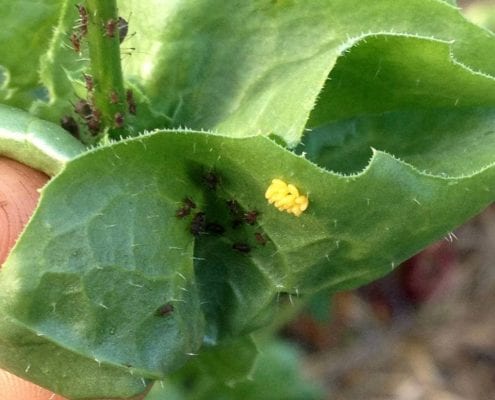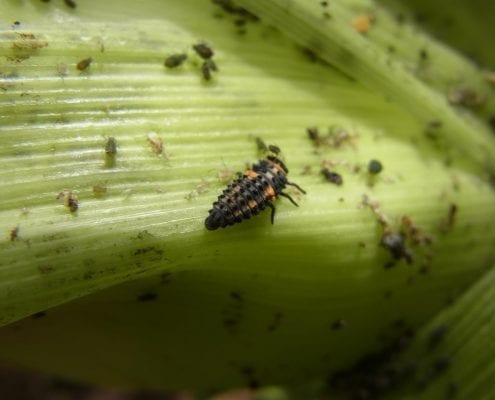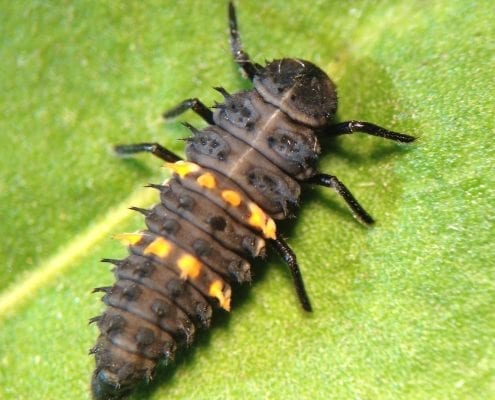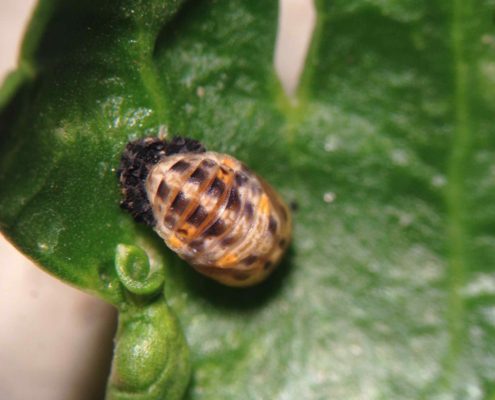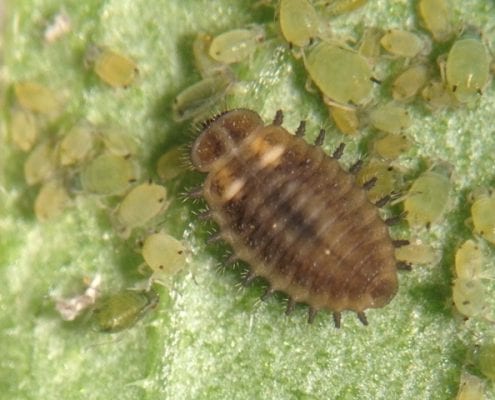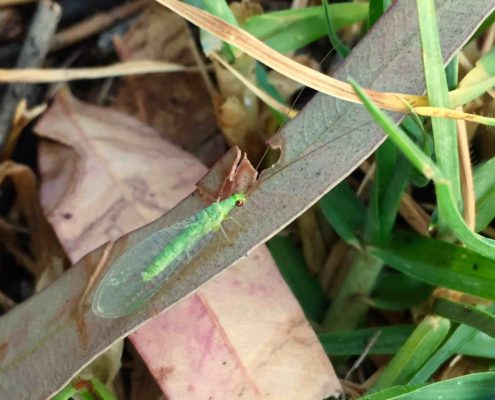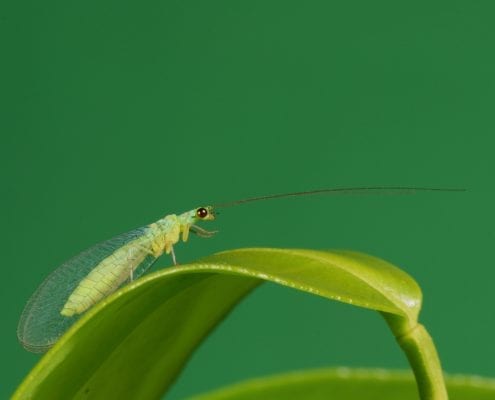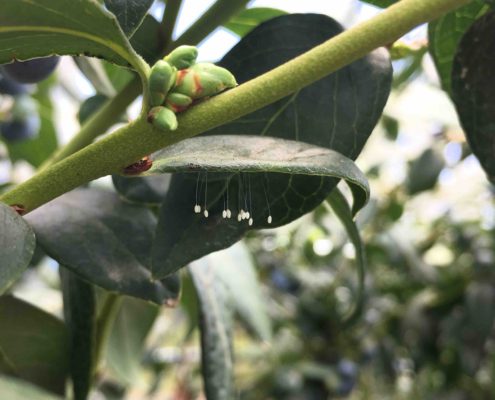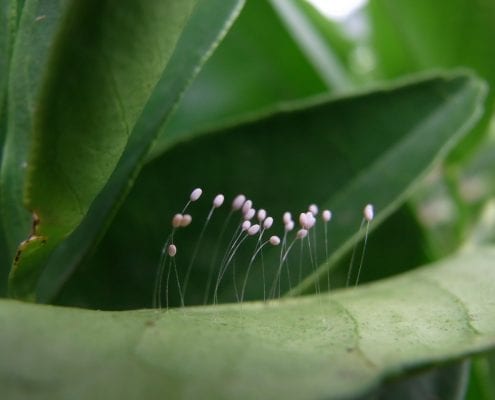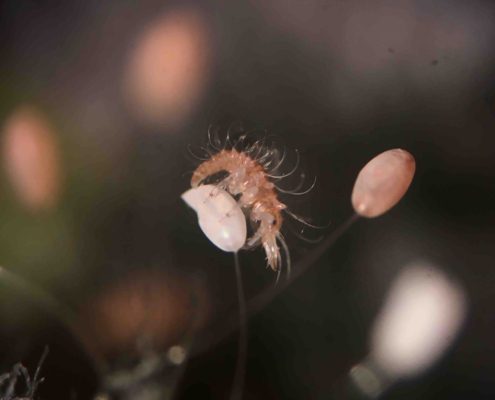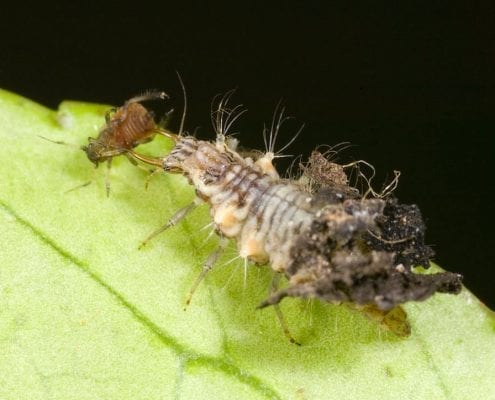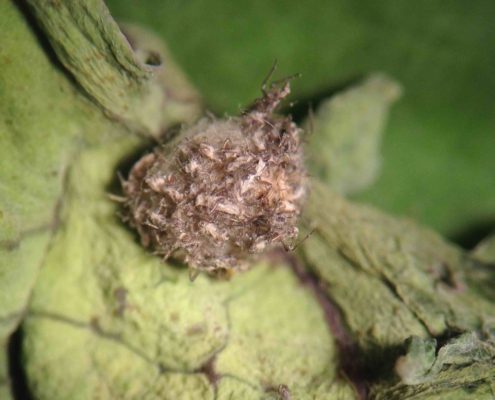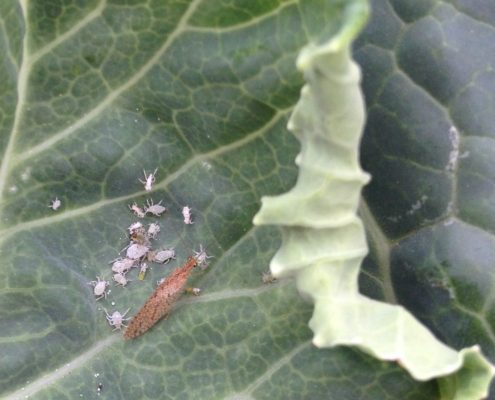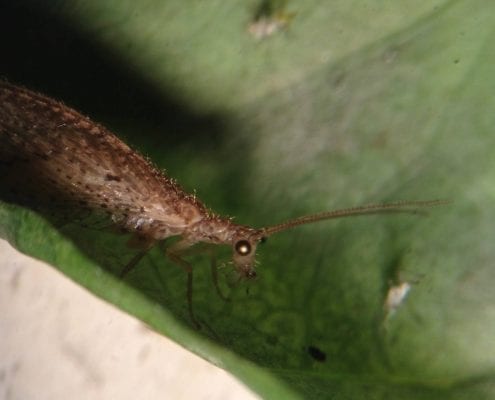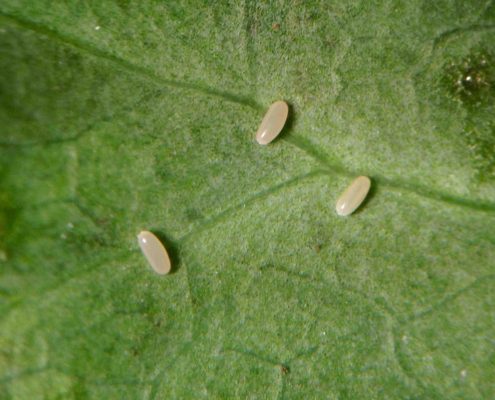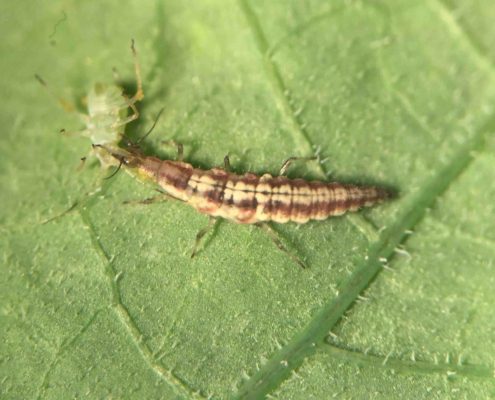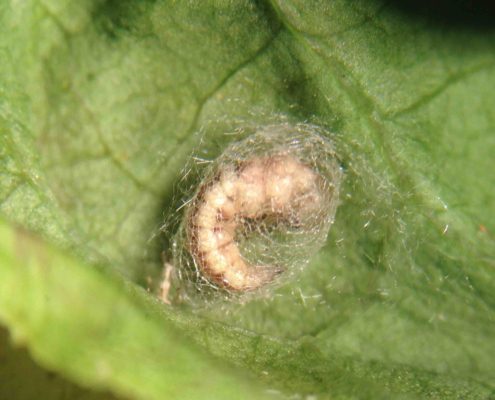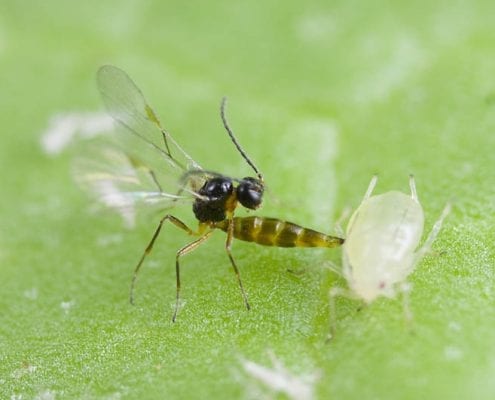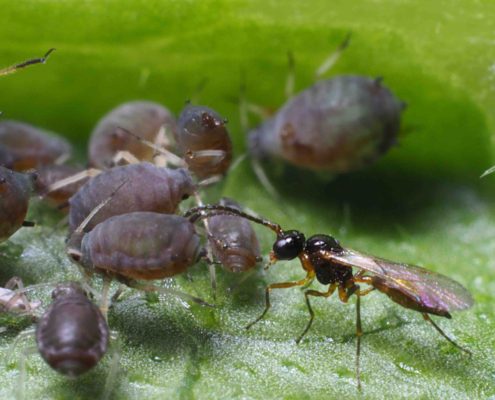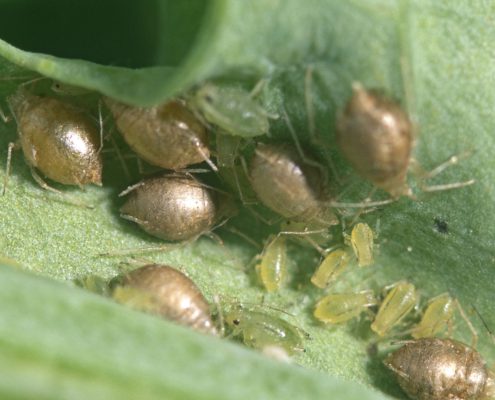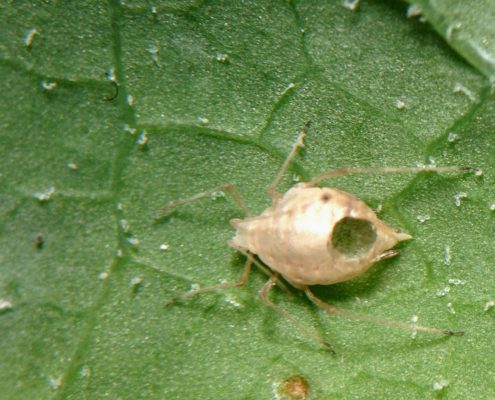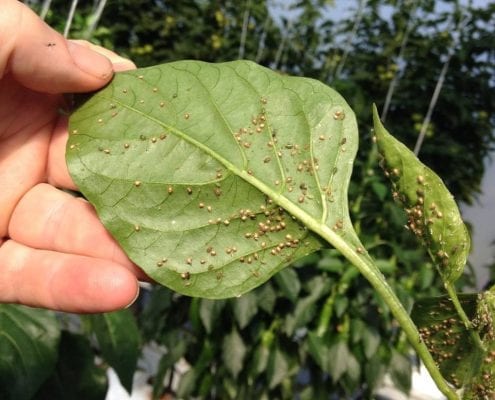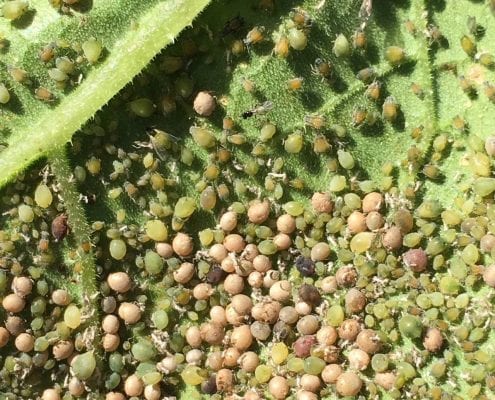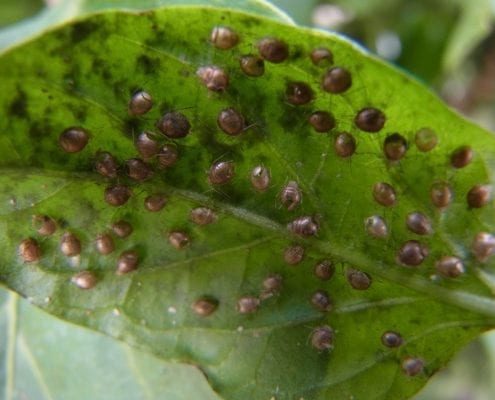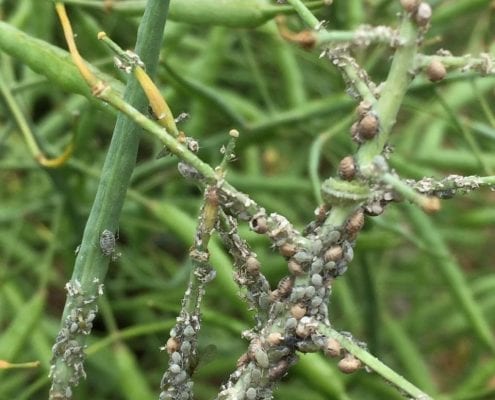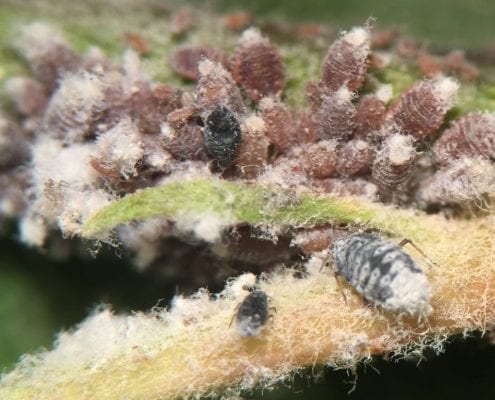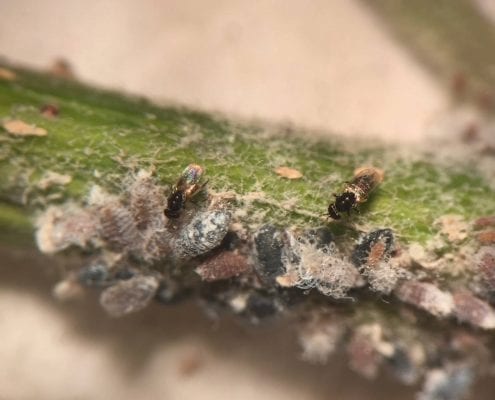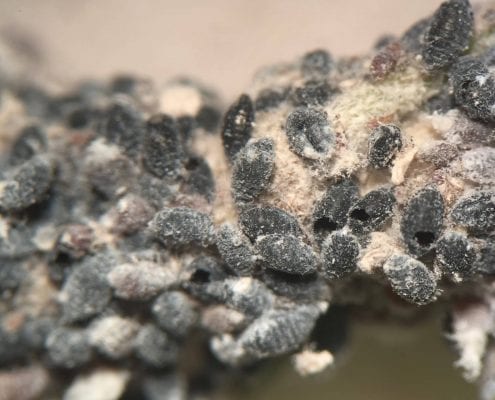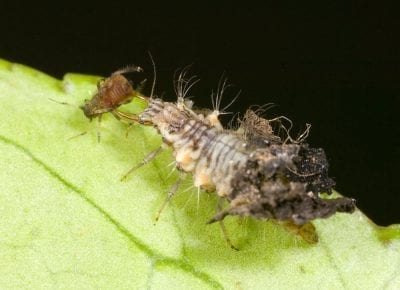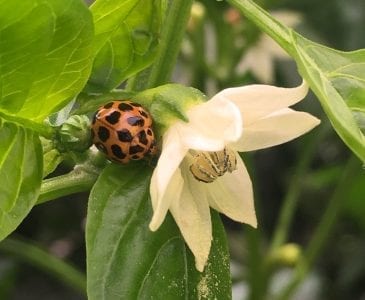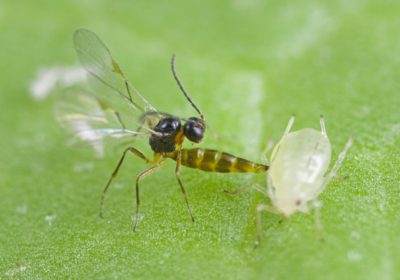Aphids
Hoverflies
Ladybirds
Lacewings
Aphid parasites
Aphids
Aphids are sap-sucking insects that cause damage to plants in a variety of ways. They slow plant growth, cause distortion and vector plant diseases. They also produce large quantities of a sweet excretion called honeydew that encourages the growth of sooty mould. This unsightly black fungal growth reduces quality and yield because it compromises photosynthesis and contaminates fruit and flowers.
Biology
Aphids have the capacity to breed very quickly under the right conditions so they often appear out of nowhere and rapidly increase in number. Adult aphids can be either winged or wingless and the majority of the population are females produced via asexual reproduction. Winged adults fly into a crop and quickly establish a colony if the plants are a suitable host. Females give birth to live young that immediately begin to feed on plant sap. These nymphs moult four times before they become fully developed adults. Many of these adults may be wingless and they (and their progeny) will continue to breed on the same plant until they become overcrowded or stressed. At this point they produce offspring that develop into winged adults which can easily move to other plants and initiate new colonies.
Natural enemies
Fortunately the arrival of aphids is usually quickly followed by a variety of natural enemies (predators and parasites) that can help control aphid populations. Most aphids have several biological control agents and in many crops and gardens it is possible to achieve good aphid management without resorting to chemical treatments.
Hoverflies, lacewings, ladybirds and parasitic wasps are some of the most abundant and powerful natural enemies of aphids. Provided they have not been harmed by toxic pesticides, you should be able to observe and benefit from their activity at this time of year. You just need to know what to look for. To help you out, we have provided a selection of images.
Bugs for Bugs produces three aphid biocontrol agents that can work individually or as a package. Our Aphidius wasps are ideal for preventative treatment or management of low level aphid infestations – they are master scouts, well adapted to finding and attacking aphids long before we can detect them ourselves. Our Lacewings and Spotted Ladybirds are best applied to treat hotspots, where they can immediately get to work cleaning up heavily infested plants.
Solutions
Lacewings are aggressive general predators that feed on a range of pest insects and mites. Aphids are one of their favourite foods. We recommend lacewings for treatment of aphid hotspots.
Ladybirds are important aphid predators. Both the adults and larvae of many ladybird species feed on aphids. We supply a native Australian spotted ladybird (Harmonia conformis) for aphid control. This is an entirely new biocontrol product – it has never before been reared commercially and made available for release as an introduced biocontrol agent. We recommend these ladybirds for treatment of aphid hotspots.
Aphidius colemani are tiny wasps that parasitise aphids. They are recognised worldwide as valuable natural enemies of many common aphid species. They are well adapted to finding aphids and their short generation time allows them to establish quickly. They specifically target aphids and are harmless to other animals. We recommend these wasps for preventative treatment or for the management of low-level aphid infestations. They can be used alongside lacewings and ladybirds to manage heavier aphid outbreaks.

